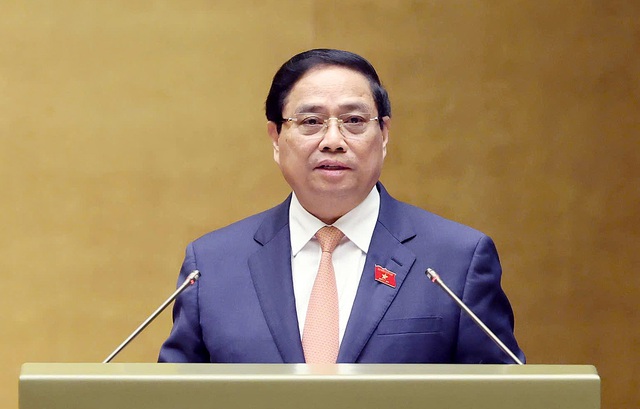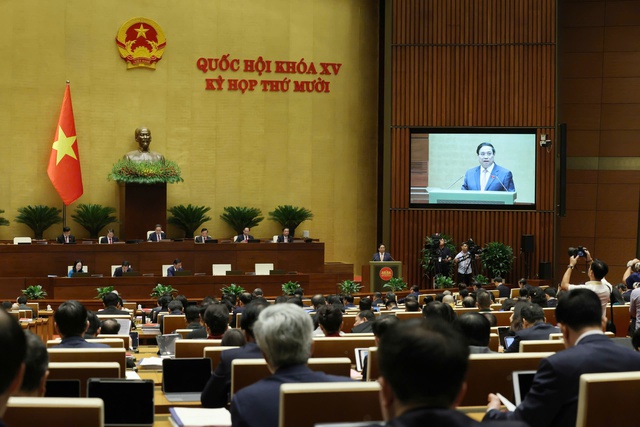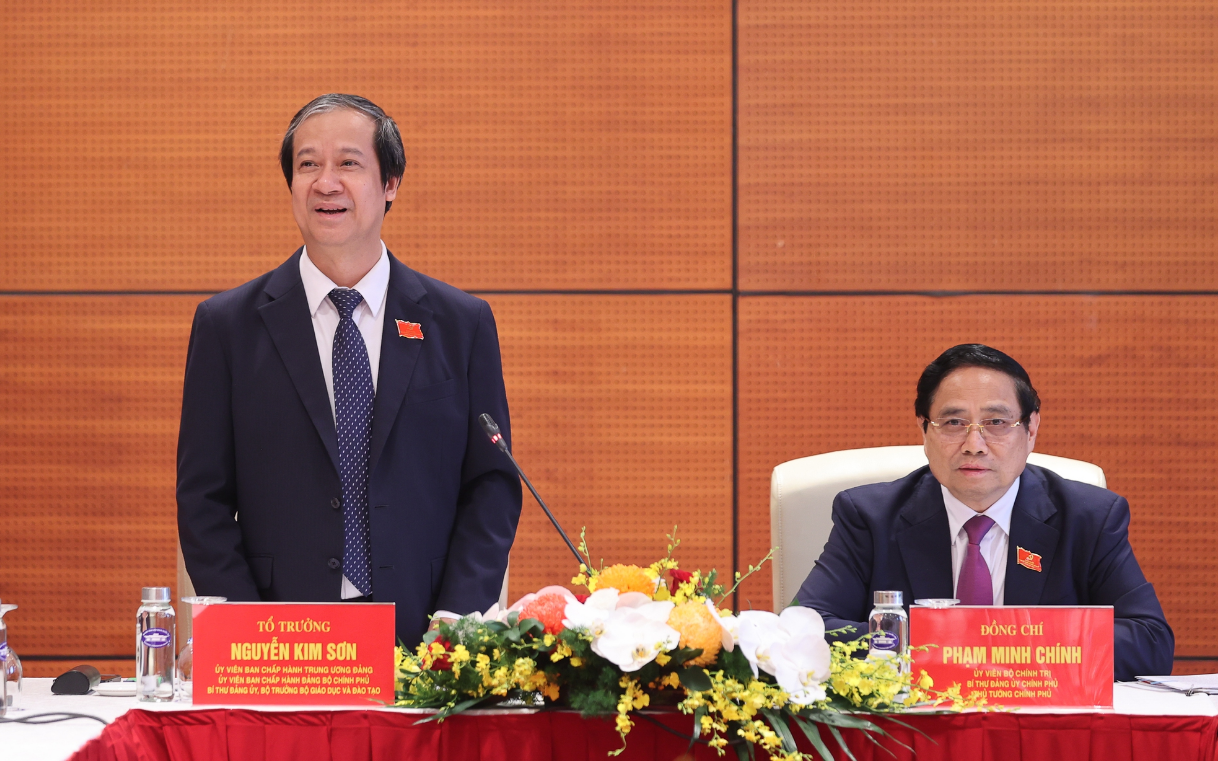
Vietnamese Prime Minister Pham Minh Chinh speaks at the opening of the 10th and final session of the 15th National Assembly in Hanoi, Vietnam, October 20, 2025. Photo: Gia Han
Speaking at the opening session of the legislature’s 10th meeting, Chinh presented the government’s review of the 2021–25 socio-economic plan and outlined key targets for 2026.
Vietnam’s economic scale grew from $346 billion in 2020 to an estimated $510 billion in 2025, bringing the country up five spots to 32nd globally, the prime minister said.
Per capita GDP is expected to hit around $5,000 by the end of this year, a 1.4-fold increase compared to 2020.
Chinh said Vietnam has recovered strongly from the COVID-19 pandemic and has maintained macroeconomic stability, with inflation kept below four percent and major economic balances sustained.
He noted that 22 out of 26 national development targets were met or exceeded during the current five-year term.

Delegates attend the 10th and final session of Vietnam’s 15th National Assembly as Prime Minister Pham Minh Chinh speaks in Hanoi, October 20, 2025. Photo: Gia Han
Key priorities for 2026 include accelerating industrialization, improving productivity, restructuring the economy, controlling public debt, and implementing strategic infrastructure projects such as the North–South high-speed railway and new rail links to China.
The government plans to train 100,000 engineers in semiconductors, artificial intelligence, and other high-tech sectors, while also delivering 110,000 units of affordable housing and stepping up climate adaptation efforts.
Chinh said the government has cut 145,000 administrative jobs and reduced regular budget spending by VND39 trillion ($1.48 billion) per year.
Nearly VND13.6 trillion ($516.3 million) and $520,000 in assets have been recovered from corruption cases, with VND438 trillion ($16.6 billion) in assets frozen.
Despite progress, the prime minister acknowledged ongoing challenges, including financial market volatility, slow reform in local governance, and continued environmental concerns.
“Entering a new phase, we must convert risks into opportunities and build a digital government, digital economy, and digital society,” Chinh said.



Max: 1500 characters
There are no comments yet. Be the first to comment.